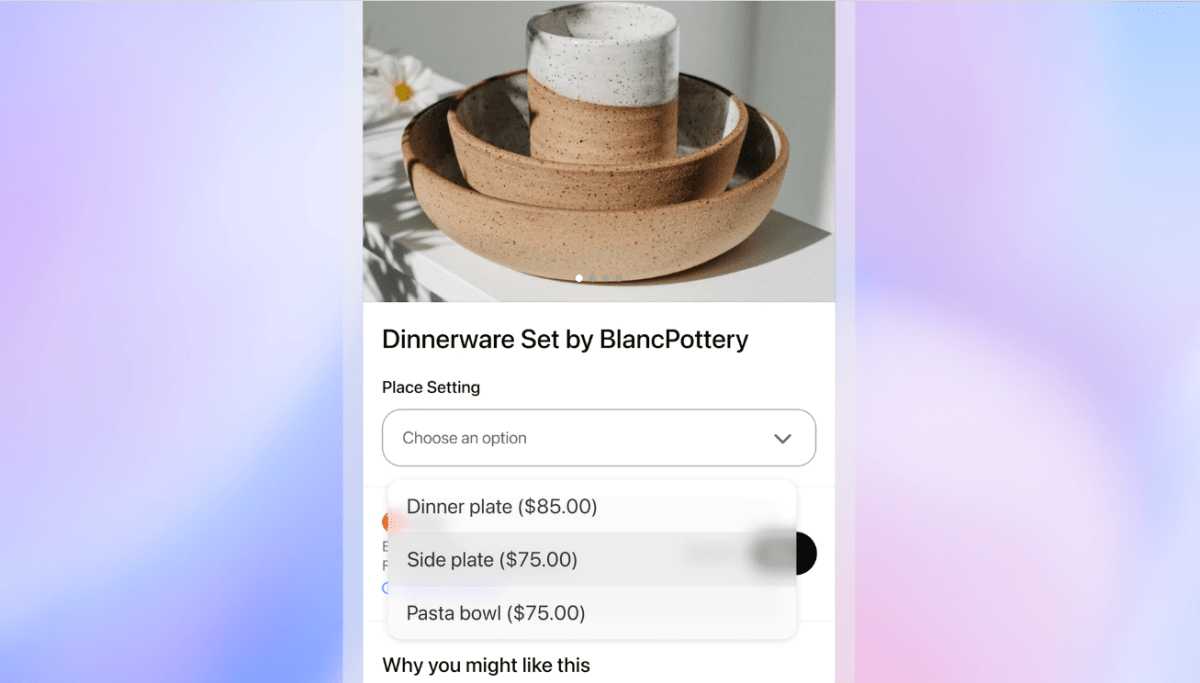OpenAI Launches Instant Checkout for ChatGPT, Bringing In‑Chat Shopping to U.S. Consumers

Key Points
- ChatGPT users in the United States can buy directly from Etsy and soon from over 1 million Shopify merchants.
- Instant Checkout displays product details, reviews, and prices within the chat before purchase.
- Payments can be completed via Apple Pay, Google Pay, Stripe, or credit cards.
- OpenAI says product results are organic, unsponsored, and ranked by relevance.
- Merchants are charged a small fee for each completed transaction.
- OpenAI will open source its Agentic Commerce Protocol (ACP) built with Stripe.
- The feature positions OpenAI as a new gatekeeper, challenging Google and Amazon.
- Competitors like Perplexity and Microsoft already offer similar in‑chat shopping tools.
OpenAI has introduced an Instant Checkout feature that lets ChatGPT users in the United States buy directly from Etsy and upcoming Shopify merchants without leaving the conversation. The tool surfaces product details, reviews, and pricing, then allows users to confirm orders, shipping, and payment through options such as Apple Pay, Google Pay, Stripe, or credit cards. OpenAI describes the product results as organic and unsponsored, and it will charge merchants a small fee for completed purchases. The move positions OpenAI as a new gatekeeper in e‑commerce, challenging established platforms like Google and Amazon.
Instant Checkout Brings Shopping Inside ChatGPT
OpenAI announced that ChatGPT users in the United States can now make purchases from U.S.-based Etsy sellers directly within the chat interface. The new Instant Checkout feature expands soon to more than 1 million Shopify merchants, including well‑known brands. Users can ask the assistant for product recommendations, view images, prices, and reviews, and then tap a “Buy” button to confirm their order, shipping address, and payment method.
Seamless Payment Options
The checkout flow supports Apple Pay, Google Pay, Stripe, or traditional credit‑card payments. OpenAI emphasizes that the transaction is handled by the merchant’s existing systems, with ChatGPT acting as an intermediary that securely passes information between buyer and seller.
OpenAI’s Position in the E‑Commerce Landscape
OpenAI says the product results it surfaces are “organic and unsponsored, ranked purely on relevance to the user.” The company will charge merchants a small fee for each completed purchase. By integrating shopping directly into conversational AI, OpenAI aims to shift product discovery away from search engines and traditional e‑commerce platforms toward AI‑driven recommendations.
Industry Context and Competition
Last year, Perplexity introduced a similar in‑chat shopping and payments feature, and Microsoft offers merchants the ability to create in‑chat storefronts through its Copilot Merchant Program. The rollout adds OpenAI to a growing list of tech firms seeking to become the primary gateway for online retail.
Open Sourcing the Agentic Commerce Protocol
OpenAI announced that it will open source the Agentic Commerce Protocol (ACP), the technology that powers Instant Checkout and is built with Stripe. This move is intended to make it easier for developers and merchants to integrate AI‑driven checkout experiences, potentially expanding OpenAI’s influence over the emerging AI commerce ecosystem.
Potential Impact on Established Gatekeepers
Google and Amazon have long dominated retail discovery and have been known to favor their own products or partners in search results and marketplace listings. By enabling purchases inside AI chatbots, OpenAI could become a new power broker, influencing which products are highlighted and what fees are charged. The company’s approach contrasts with Google’s recent launch of its own open protocol for AI‑initiated purchases, called Agent Payments Protocol (AP2).
Looking Ahead
OpenAI’s Instant Checkout positions the firm as a key player in the next phase of online shopping, where conversational agents handle the entire purchase journey. As more merchants adopt the open ACP framework, the balance of power in e‑commerce may shift toward AI platforms that combine recommendation, comparison, and frictionless checkout within a single user experience.